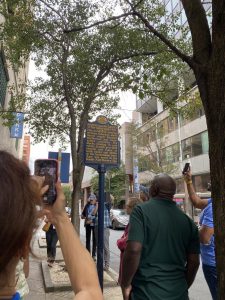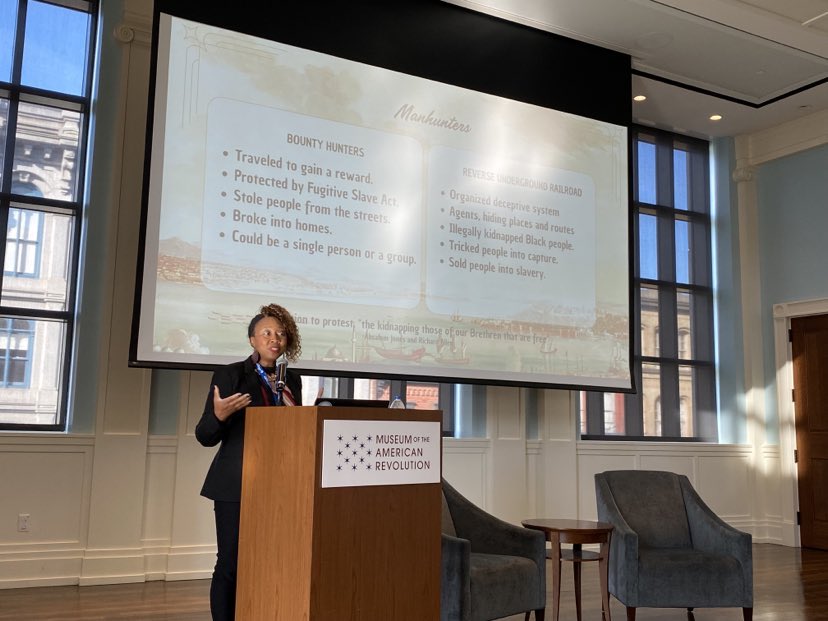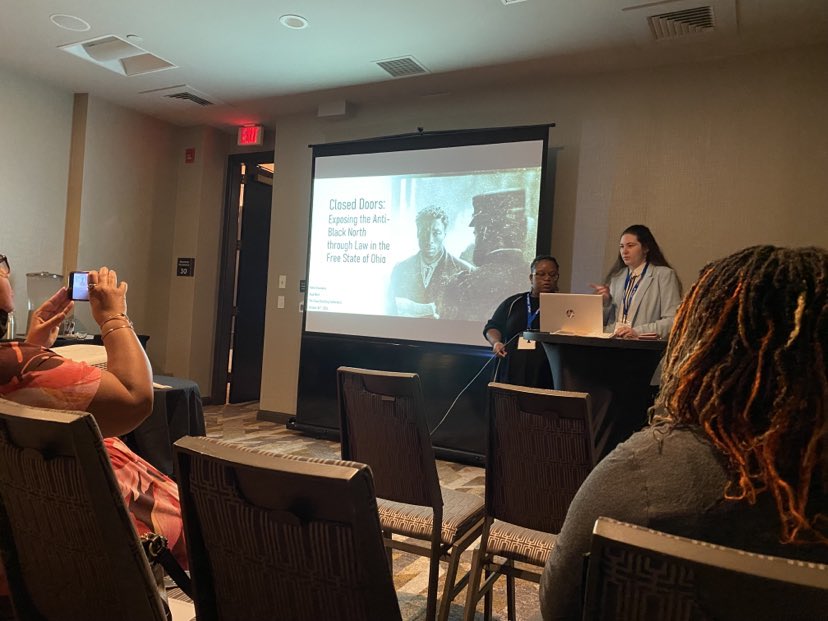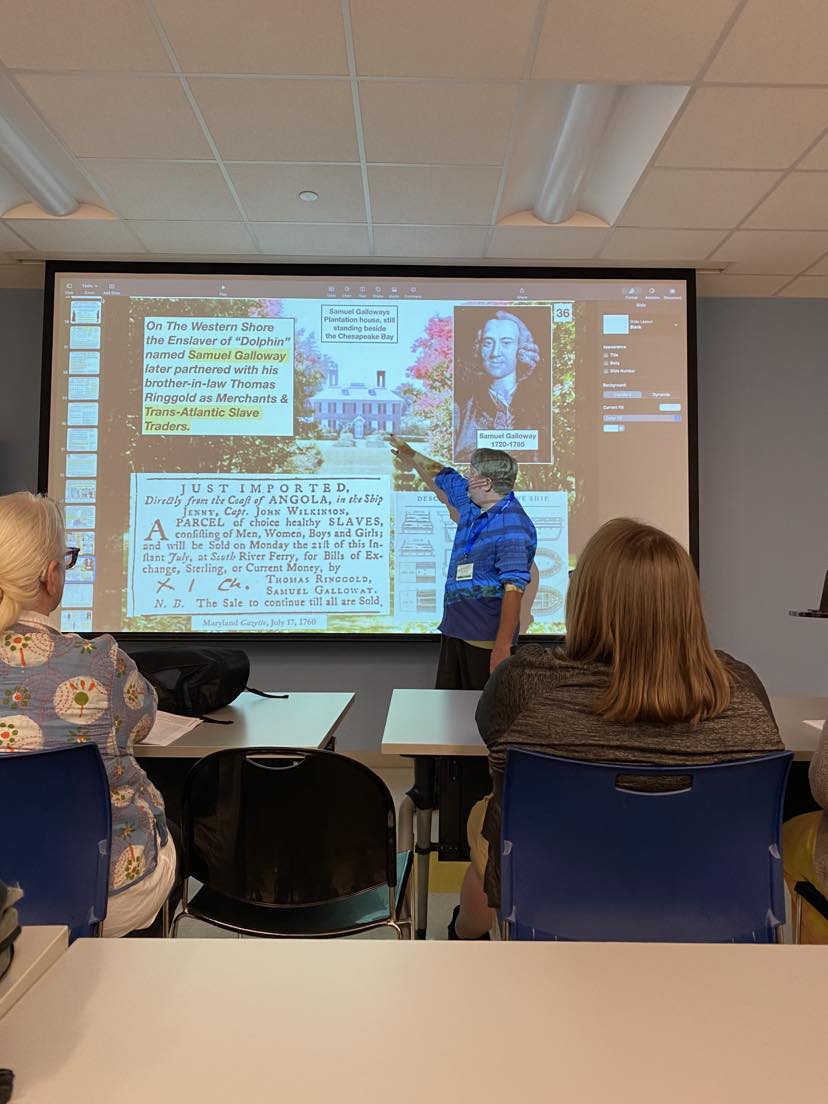National conference encourages a more inclusive historical narrative
HCA travels to Slave Dwelling Project Conference held in Philadelphia
This October, several staff members from the Delaware Division of Historical and Cultural Affairs (HCA) traveled to Philadelphia for the eighth annual Slave Dwelling Project Conference, a collaborative initiative to help Americans embrace a more inclusive narrative of national history that acknowledges the truth of slavery’s impact and honors the diverse contributions of all Americans.
“The perspectives of both free and enslaved Black people have been silenced throughout history,” said Allison Reardon, lead interpreter at the New Castle Court House Museum and one of the staff members who attended and presented at the recent conference. “People are fighting for the recognition of the agency of people in the past as well as recognition of their own agency.”
For example, at the conference, living historian Cheyney McKnight described her experiences in historical interpretation as a Black woman, noting that typical living history interpretation can inflict further damage to marginalized communities who have already been hurt by the silencing of their histories at museums and historic sites. “Afroterpretation,” which she described as interpretation done by Black people for healing, is a way of disrupting traditional public history spaces and asserting agency, Reardon recalled.
“It has given Allison and I ideas and steps to help research, interpret and promote more inclusive history,” said Julliette Wurm with HCA’s New Castle Court House Museum.
For Annie Fenimore, lead interpreter at HCA’s John Dickinson Plantation, the conference was not only an opportunity to learn about the experiences of people like McKnight, but also a chance to share the important work being done in Delaware.
“The Slave Dwelling Project is doing great work and I’m so pleased to have been able to share our work at the John Dickinson Plantation at their conference, as well as bring the Plantation Stories Project website to the attention of different audience members who might not have known to seek it out otherwise,” she said.
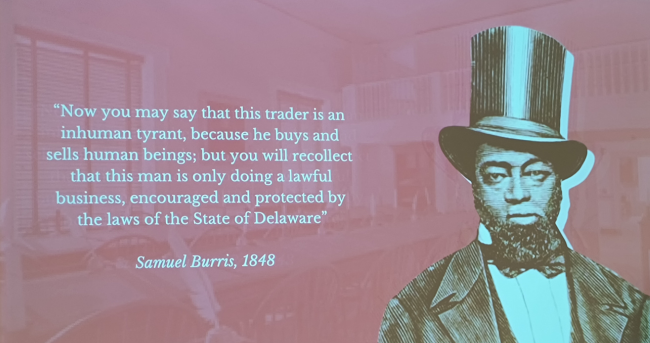
At the conference, HCA staff also presented updates on local efforts to give voice to silenced histories, described through presentations titled “Ending Erasure: Uncovering the Legacy of Slavery in Central Delaware” and “A Lawful Business: The Legality of Slavery and the Interpretation of a Place of Law.” Through those presentations, staff were able to share the stories of never-before-told Delawareans whose right to freedom was also stolen, through slavery and indentured servitude at famous places like Delaware’s John Dickinson Plantation. They also shared information about how slavery was enshrined in Delaware’s inequitable laws and how to interpret this hard history at a former capitol building that’s now a museum.
The conference highlighted impactful research chronicling how African Americans forged their own identities, infrastructure and communities despite the brutal and dehumanizing legacy of slavery in the colonization and creation of the United States. Speakers touched on everything from religious practices and African identities that built cultural similarities and influenced cultural practices within early America to how Black agency and the Civil war were intrinsically connected through service in the United States Colored Troops and the impact of the Christiana (Pennsylvania) Resistance of 1851 that repelled an enslaver hunting those seeking freedom.
“We learned if we are not honest with our audiences on the history of enslavement, we are perpetuating harm and trauma,” said HCA’s Curator of Education Vertie Lee.
Another impactful initiative that impressed HCA staff was the 1838 Black Metropolis project, a combination of online educational resources, tools and tours dedicated to rewriting the narrative of Black history within the City of Philadelphia. According to the project: “The influence of this Black community’s coordination and activism extended regionally and nationally throughout the 19th century. The spatial stability and density of Philadelphia’s Black Metropolis anchored a national fight against slavery and for Black civil rights.”
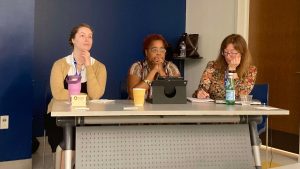
“This conference reminded attendees that Black history is not just enslavement,” said Lee. “It did not begin with enslavement or end with Reconstruction. It is the history of triumphs, infrastructure, agency and autonomy during a time of oppression. Those are the stories that we as an agency should also be researching, sharing and telling.”
To learn more about how HCA is focused on highlighting a more inclusive historical narrative in Delaware, read about the division’s recent work with the Southern Delaware Alliance for Racial Justice, learn about the Plantation Stories Project at the John Dickinson Plantation in Dover, explore stories of Segregated Sands and visit all the facets of Delaware’s history through Delaware’s first digital queer history resource.



